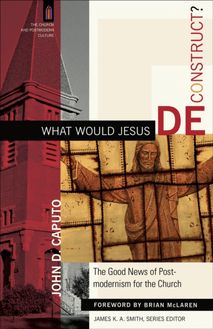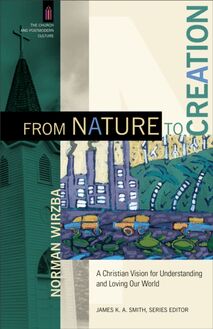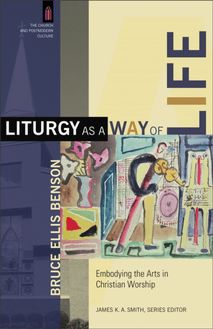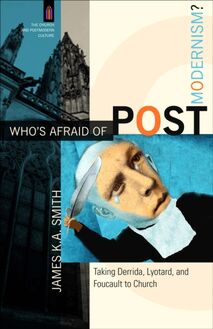-
 Univers
Univers
-
 Ebooks
Ebooks
-
 Livres audio
Livres audio
-
 Presse
Presse
-
 Podcasts
Podcasts
-
 BD
BD
-
 Documents
Documents
-
- Cours
- Révisions
- Ressources pédagogiques
- Sciences de l’éducation
- Manuels scolaires
- Langues
- Travaux de classe
- Annales de BEP
- Etudes supérieures
- Maternelle et primaire
- Fiches de lecture
- Orientation scolaire
- Méthodologie
- Corrigés de devoir
- Annales d’examens et concours
- Annales du bac
- Annales du brevet
- Rapports de stage
La lecture à portée de main
Vous pourrez modifier la taille du texte de cet ouvrage
Découvre YouScribe en t'inscrivant gratuitement
Je m'inscrisWhose Community? Which Interpretation? (The Church and Postmodern Culture) , livre ebook
Découvre YouScribe en t'inscrivant gratuitement
Je m'inscrisEn savoir plus
Vous pourrez modifier la taille du texte de cet ouvrage
En savoir plus

Description
Sujets
Informations
| Publié par | Baker Publishing Group |
| Date de parution | 01 septembre 2009 |
| Nombre de lectures | 1 |
| EAN13 | 9781441206657 |
| Langue | English |
| Poids de l'ouvrage | 1 Mo |
Informations légales : prix de location à la page 0,0528€. Cette information est donnée uniquement à titre indicatif conformément à la législation en vigueur.
Extrait
Whose Community? Which Interpretation?
THE CHURCH AND POSTMODERN CULTURE
James K. A. Smith, series editor www.churchandpomo.org
The Church and Postmodern Culture series features high-profile theorists in continental philosophy and contemporary theology writing for a broad, nonspecialist audience interested in the impact of postmodern theory on the faith and practice of the church.
Also available in the series
James K. A. Smith, Who’s Afraid of Postmodernism? Taking Derrida, Lyotard, and Foucault to Church
John D. Caputo, What Would Jesus Deconstruct? The Good News of Postmodernism for the Church
Carl Rashke, GloboChrist: The Great Commission Takes a Postmodern Turn
Graham Ward, The Politics of Discipleship: Becoming Post-material Citizens
© 2009 by Merold Westphal
Published by Baker Academic a division of Baker Publishing Group P.O. Box 6287, Grand Rapids, MI 49516-6287 www.bakeracademic.com
Ebook edition created 2010
Ebook corrections 01.29.2021
All rights reserved. No part of this publication may be reproduced, stored in a retrieval system, or transmitted in any form or by any means—for example, electronic, photocopy, recording—without the prior written permission of the publisher. The only exception is brief quotations in printed reviews.
Library of Congress Cataloging-in-Publication Data is on file at the Library of Congress, Washington, DC.
ISBN 978-1-4412-0665-7
Scripture quotations are from the New Revised Standard Version of the Bible, copyright © 1989, by the Division of Christian Education of the National Council of the Churches of Christ in the United States of America. Used by permission. All rights reserved.
Contents
Cover
Half Title Page
Series Page
Title Page
Copyright Page
Series Preface
Series Editor’s Foreword
Preface
1. Hermeneutics 101: No Interpretation Needed?
2. Hermeneutics 102: A Little Historical Background
3. Against Romantic Hermeneutics: Away from Psychologism
4. Objectivism and Authorial Privilege
5. Revoking Authorial Privilege
6. Rehabilitating Tradition
7. On Not Clinging to the Prejudice against Prejudice
8. Art as the Site of Truth beyond Method
9. Performance, Application, Conversation
10. Conversation and the Liberal-Communitarian Debate
11. The Church as Conversation
12. Transcendence, Revelation, and Community
Back Cover
Series Preface
Current discussions in the church—from emergent “postmodern” congregations to mainline “missional” congregations—are increasingly grappling with philosophical and theoretical questions related to postmodernity. In fact, it could be argued that developments in postmodern theory (especially questions of “post-foundationalist” epistemologies) have contributed to the breakdown of former barriers between evangelical, mainline, and Catholic faith communities. Postliberalism—a related “effect” of postmodernism—has engendered a new, confessional ecumenism wherein we find nondenominational evangelical congregations, mainline Protestant churches, and Catholic parishes all wrestling with the challenges of postmodernism and drawing on the culture of postmodernity as an opportunity for rethinking the shape of our churches.
This context presents an exciting opportunity for contemporary philosophy and critical theory to “hit the ground,” so to speak, by allowing high-level work in postmodern theory to serve the church’s practice—including all the kinds of congregations and communions noted above. The goal of this series is to bring together high-profile theorists in continental philosophy and contemporary theology to write for a broad, nonspecialist audience interested in the impact of postmodern theory on the faith and practice of the church. Each book in the series will, from different angles and with different questions, undertake to answer questions such as What does postmodern theory have to say about the shape of the church? How should concrete, in-the-pew and on-the-ground religious practices be impacted by postmodernism? What should the church look like in postmodernity? What has Paris to do with Jerusalem?
The series is ecumenical not only with respect to its ecclesial destinations but also with respect to the facets of continental philosophy and theory that are represented. A wide variety of theoretical commitments will be included, ranging from deconstruction to Radical Orthodoxy, including voices from Badiou to Žižek and the usual suspects in between (Nietzsche, Heidegger, Levinas, Derrida, Foucault, Irigaray, Rorty, and others). Insofar as postmodernism occasions a retrieval of ancient sources, these contemporary sources will be brought into dialogue with Augustine, Irenaeus, Aquinas, and other resources. Drawing on the wisdom of established scholars in the field, the series will provide accessible introductions to postmodern thought with the specific aim of exploring its impact on ecclesial practice. The books are offered, one might say, as French lessons for the church.
Series Editor’s Foreword
J AMES K.A. S MITH
When “postmodernism” is invoked outside the rather insulated confines of the academy, it is usually a shorthand for “anything goes,” synonymous with unmitigated relativism and hermeneutic licentiousness. Granted, a lot that traffics under the banner of postmodernism seems to warrant this impression. Talk of the “death of the author” and the “play” of interpretation is often invoked for interpretive license. Indeed, interpretation is often seen as the root of the problem: postmodernism is perceived to be anything goes relativism precisely because it assumes that “everything is a matter of interpretation.” And we should note that there are both “left” and “right” versions of this. While some of us will worry that deconstructionists can make Milton or Paul mean anything they want, others worry when “interpretation” is a cover for redescribing torture as “enhanced interrogation techniques.” In some ways we’re all postmodernists now.
There is, then, an intertwining of postmodernism, interpretation, and the specter of relativism. And the stakes of this intertwining are raised in the contexts of communities of faith. For “peoples of the Book,” whose way of life is shaped by texts, matters of interpretation are, in a way, matters of life and death. In fact, for Christians, many of the anxieties of hermeneutics are nothing new. Well before we were haunted by the specters of Derrida and Foucault, the Christian community grappled with the conflict of interpretations. One can see such conflicts embedded in the New Testament narrative itself. In Acts 15, for instance, we see a conflict of interpretations of “the law”—and we see a community grappling with interpretive difference within its midst. Despite a common mythology, the early church was not a hermeneutic paradise; rather, debates about what counts as the tradition have been integral to the Christian tradition. The early church was not a golden age of interpretive uniformity; rather, the catholic councils and creeds are the artifacts of a community facing up to the conflict of interpretations.
The Reformation perhaps unleashed this hermeneutic monster with a new intensity, and many of us live in its wake. If the Reformation was about anything, it was about being confronted anew by Scripture, wrestling with the text firsthand. It was nothing short of a Reformation of reading . And though the concern was to recover the gospel—to get back to the interpretation of salvation—the result, as we now know, was a proliferation of interpretations and the multiplication of interpretive communities. The irony is that, concurrent with this hermeneutic fragmentation, a specific hermeneutic doctrine arose regarding the perspicuity or “clarity” of Scripture. While medieval (read “Catholic”) approaches to the Bible were portrayed as a morass of allegorical and imaginative acrobatics, the Reformers and their heirs championed the “plain sense” of Scripture. This basically amounted to the claim that, while others might interpret the Bible, we just read it, straight up, without any filters or biases or obfuscating meddling from ecclesiastical authorities. If we’d just stop interpreting and simply start reading, we’d arrive at the crystal-clear, objective truth of the matter. Thus the now-common refrain: Interpretation breeds relativism. Hermeneutics is the problem.
Whose Community? Which Interpretation? is a crisp, concise, provocative antidote to this common construal of the situation. And it comes from the pen of one of the masters. For two decades now I have prized and admired Merold Westphal’s lucidity (not a term often associated with Continental philosophy!). He regularly weds erudition with a kind of folksy accessibility that is as entertaining as it is illuminating. Indeed, this book is essentially a “course in a box,” a compact opportunity to learn from a master teacher. Crammed into this little book is a veritable curriculum on philosophical hermeneutics that gives us a peek into the background in figures like Schleiermacher and Dilthey, introduces us to critiques from Hirsch and Wolterstorff, and provides a core exposition of the great hermeneutic philosopher Hans-Georg Gadamer—all with a view to philosophical hermeneutics serving communities that read and pray and preach the Word.
I don’t mean to suggest that Westphal is out to comfort all our fears and worries, to make interpretation safe and secure. Indeed, he will make the case for what he calls “relativist hermeneutics”—a label that’s not going to thrill the purveyors of so-called absolute truth. But the burden of the book is to help us distinguish “anything goes” relativism from the relativity of finitude. One might say that Westphal is redeeming relativity and dependence, which seem to be the specific features of creaturehood. Along the way, he helps us navigate between “hermeneutical despair” and “hermeneutical arrogance.” That, it seems to me, is a gift for the churc
-
 Univers
Univers
-
 Ebooks
Ebooks
-
 Livres audio
Livres audio
-
 Presse
Presse
-
 Podcasts
Podcasts
-
 BD
BD
-
 Documents
Documents
-
Jeunesse
-
Littérature
-
Ressources professionnelles
-
Santé et bien-être
-
Savoirs
-
Education
-
Loisirs et hobbies
-
Art, musique et cinéma
-
Actualité et débat de société
-
Jeunesse
-
Littérature
-
Ressources professionnelles
-
Santé et bien-être
-
Savoirs
-
Education
-
Loisirs et hobbies
-
Art, musique et cinéma
-
Actualité et débat de société
-
Actualités
-
Lifestyle
-
Presse jeunesse
-
Presse professionnelle
-
Pratique
-
Presse sportive
-
Presse internationale
-
Culture & Médias
-
Action et Aventures
-
Science-fiction et Fantasy
-
Société
-
Jeunesse
-
Littérature
-
Ressources professionnelles
-
Santé et bien-être
-
Savoirs
-
Education
-
Loisirs et hobbies
-
Art, musique et cinéma
-
Actualité et débat de société
- Cours
- Révisions
- Ressources pédagogiques
- Sciences de l’éducation
- Manuels scolaires
- Langues
- Travaux de classe
- Annales de BEP
- Etudes supérieures
- Maternelle et primaire
- Fiches de lecture
- Orientation scolaire
- Méthodologie
- Corrigés de devoir
- Annales d’examens et concours
- Annales du bac
- Annales du brevet
- Rapports de stage















